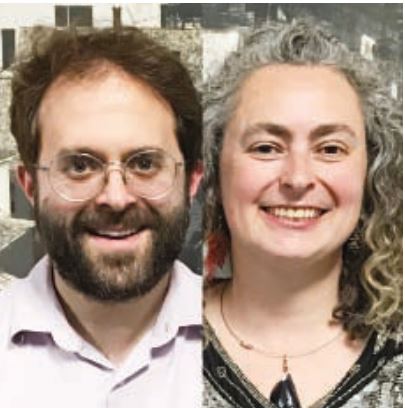by Nathan Kroms Davis & Becca Shaw Glaser September 15, 2020, The Free Press
Nate: Alas, the basic income experiment we wrote about in our last column together failed to survive even a first City Council vote! So it goes. I kind of knew it was a long shot. But part of the point of introducing long shots is so that they become part of public discourse, and eventually mainstream public discourse, and eventually happen. My next project is asking City Council to put a minimum wage referendum question on the November ballot, as Portland has done by petition.
Becca: I was really disappointed that it did not even get past the first vote in order to get a better hearing involving the community. Not that comments are always evidence of broad opinion, but I was seeing a surprising majority of positive community comments on the proposal. And faced with a pandemic and very few options for helping people stay in their homes, I thought it was worth a try! I think one problem with the pandemic is that it has made community discourse arguably less accessible — on the other hand, sometimes moving to more technological solutions can be more inclusive — such as for those with disabilities and children and those who won’t be able to make it to a council meeting in person. When they eventually go back to face to face meetings I hope that there will be an adoption of more features for participation via tech- having other people read your comments, maybe even a zoom livestream, live tweets, etc. As far as the property reval are you still going to try to delay it?
Also I think of note is that you told me after the vote on the basic minimum income idea that you specifically did not try to discuss it with councilors first. I think that was awesome, in that you were trying to do something different than how politics works most everywhere— of backrroom discussions and agreements between politicians (well, and also corporate and gun and pahramacetiyack lobbyists etc) and you attempted to bring it directly into the public arena of being discussed live in public. But it failed. So, join the club? Go back to the old way?
Nate: Regarding the property revaluation, we’re going to have a public City Council meeting about it soon (date TBD). My preference would be to delay or somehow mitigate it, but I don’t know how the rest of City Council feels. Yes, I did try to have the discussion about the basic income program almost entirely in public — and, yes, it failed, which is a grim lesson (though it may have failed anyway). It may be the case that representative democracy does indeed require private discussions and “backroom deals” to get bold legislation passed. I’m thinking about the extremely messy legislative process around the Civil Rights Acts, for example, and Lyndon Johnson’s role in shepherding them through — not that I have attempted anything remotely at the same scale or of the same significance!
Becca: Where did you get this idea that Lyndon B. Johnson is some great white civil rights hero? My understanding was that Rev. Dr. Martin Luther King Jr. was pretty much forcing him to do it though excellent, strategic activism both in public and private. Let’s give credit only where credit is due.
Nate: I didn’t say anything about heroism! I was referring to LBJ’s role as a master strategist, especially in the Senate: deals, cajoling, threats, a whole range of manipulation.
Becca: You may not have technically used the term “hero,” but I still think that referring to him in that way doesn’t give proper credit where credit was due, and it unfairly centers whiteness, although I know you were using it as an example specifically of how politicians (at that time, and still now, overwhelmingly white) operate. And using the word “master” in the context of civil rights is worth thinking about as well. Back to the living-wage proposal: of course I support that so much. It’s common sense. During the pandemic, we have acted as if we now respect and embrace and thank “essential” workers. Yet many of these workers are stuck making low wages. Let’s put our community where our mouth is, and support workers in actual, substantive ways.
Nate: Speaking of “masters,” I was just reading about Hermes Trismegistus (“Thrice Master”), the purported originator of a body of ancient religious texts that formed the basis of what came to be known as Hermeticism and, later, much of the occult. Becca, do you think there is a body of secret, hidden knowledge that can guide us through these difficult times?
Becca: Haha! Nate, ummm, you’re not your usual happy self if you’re referring to now as “difficult times” since you tend to fight to the end about what great times we are living in, overall, as a species. As far as hidden knowledge, it’s great to learn from cultures and times about how people have struggled and strategized for safety, health, connection, and, anti-fascism.

Nathan Kroms Davis is a Rockland City Councilor. Becca Shaw Glaser, however, is just one of the masses.